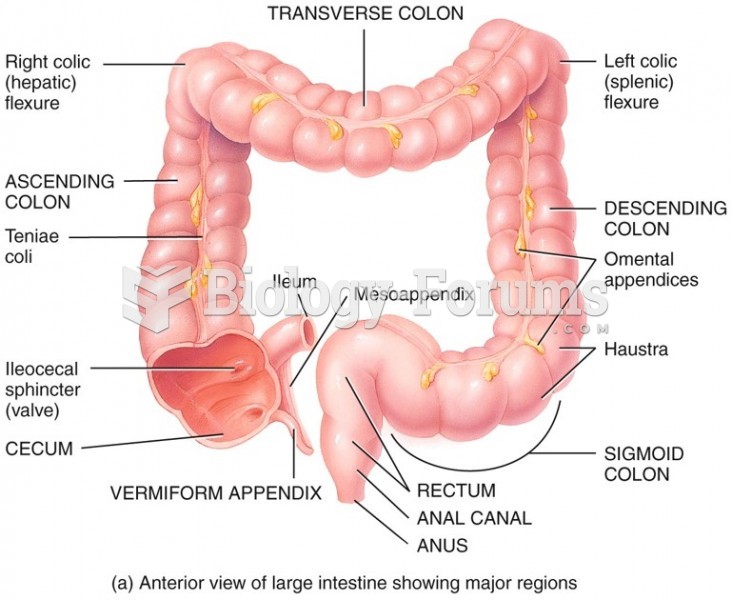|
|
|
Human kidneys will clean about 1 million gallons of blood in an average lifetime.
About 80% of major fungal systemic infections are due to Candida albicans. Another form, Candida peritonitis, occurs most often in postoperative patients. A rare disease, Candida meningitis, may follow leukemia, kidney transplant, other immunosuppressed factors, or when suffering from Candida septicemia.
Chronic marijuana use can damage the white blood cells and reduce the immune system's ability to respond to disease by as much as 40%. Without a strong immune system, the body is vulnerable to all kinds of degenerative and infectious diseases.
Lower drug doses for elderly patients should be used first, with titrations of the dose as tolerated to prevent unwanted drug-related pharmacodynamic effects.
The first oncogene was discovered in 1970 and was termed SRC (pronounced "SARK").
 The rotifer, Brachionus calyciflorus, is a large predator that consumes the smaller algae, Chlorella
The rotifer, Brachionus calyciflorus, is a large predator that consumes the smaller algae, Chlorella
 Polyps and polyposis. A polyp is a protruding growth from a mucous membrane lining a hollow organ. I
Polyps and polyposis. A polyp is a protruding growth from a mucous membrane lining a hollow organ. I





